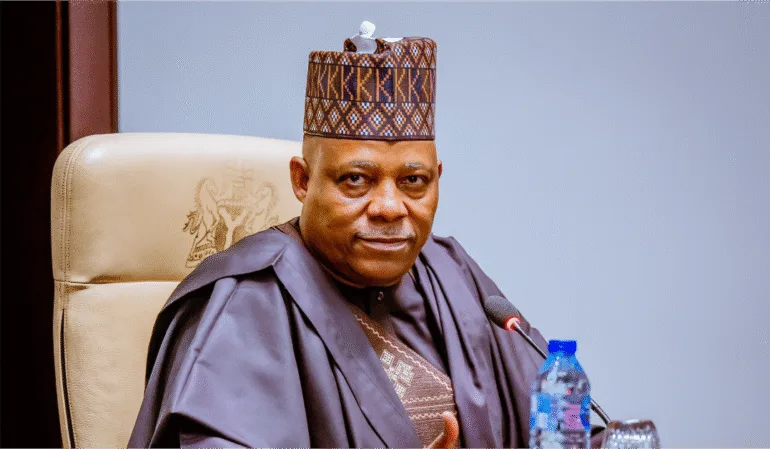The Federal Government has announced a new set of incentives aimed at unlocking Nigeria’s agricultural potential, as part of President Bola Tinubu’s Renewed Hope Agenda. The measures are designed to attract large-scale investments in agriculture and infrastructure and to address the nation’s growing food insecurity.
Vice President Kashim Shettima made the announcement on Tuesday in Abuja at the Food and Agriculture Organization (FAO) National and Sub-regional Hand-in-Hand Investment Forum. He emphasized the urgency of mobilizing Nigeria’s resources to build a sustainable and food-secure future.
“Nothing unifies humanity like hunger. It is the great equaliser that exposes our shared vulnerability. Food is not just a matter of survival; it is a matter of global security,” Shettima said.
Nigeria has faced mounting pressure to reduce its reliance on food imports and tackle rising food insecurity, which worsened following the removal of fuel subsidies and recent currency reforms that triggered inflation and increased the cost of living.
In response, the government is introducing several strategic reforms aimed at transforming the agricultural landscape. These include establishing single-window platforms for land registration to simplify access for investors, enhancing agricultural credit systems to support farmers, promoting large-scale mechanisation, and prioritising strategic investments in irrigation infrastructure.
Shettima noted that Nigeria has the capacity to irrigate over three million hectares of farmland but currently utilises less than 10 percent of that potential. He stressed that investing in irrigation could significantly boost agricultural productivity, eliminate dependence on seasonal rainfall, and improve resilience to climate-related disruptions. “Strategic investment in irrigation alone could triple crop yields, eliminate seasonal dependence, and strengthen our resilience to climate shocks,” he stated.
He further explained that the government’s 2021–2025 National Development Plan aims to lift 35 million Nigerians out of poverty, create 21 million jobs in rural areas, and ensure national food and nutrition sufficiency. He reassured potential partners and investors that the government is committed to regulatory reforms, public-private partnerships, and innovation-driven agri-tech solutions to make Nigeria attractive for agribusiness.
“Nigeria is open for business, and we are ready to partner with investors. Let us work hand-in-hand to build a sub-region where no one goes to bed hungry, where rural communities become engines of wealth, and where agriculture truly drives prosperity,” the Vice President added.
Speaking at the forum, the Minister of Agriculture and Food Security, Abubakar Kyari, said Nigeria offers unique opportunities for investors due to its large domestic market, vast arable land, favourable weather conditions, and a rapidly expanding digital economy. These elements, he said, make Nigeria an ideal destination for investment across the agribusiness value chain.
Senator Atiku Bagudu, Minister of Budget and Economic Planning, echoed the sentiment, stating that Nigeria’s economic potential remains largely untapped—particularly in agriculture and irrigation, which hold immense promise for economic diversification and transformation. He reiterated that agriculture remains central to both the medium- and long-term national development agenda, as well as President Tinubu’s Renewed Hope Agenda.
Also present at the forum was Dr. Demba Sabally, The Gambia’s Minister of Agriculture, Livestock and Food Security, who praised Nigeria’s agricultural leadership in the region. He highlighted the country’s success stories in rice and cassava production as models worth emulating across West Africa. Dr. Sabally also commended the FAO for convening the forum and fostering vital discussions around agricultural investment and food security in the sub-region.


